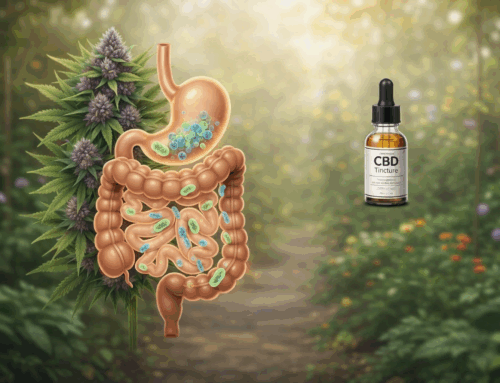Muscular Dystrophy, or MD, is a group of inherited disorders characterized by progressive muscle weakness, mental health challenges, and muscle degeneration. It is considered a progressive disorder that may worsen if not managed appropriately. Recent studies suggest that medical marijuana helps muscular dystrophy by alleviating symptoms such as chronic pain, muscle spasms, and stiffness.
The symptoms of this condition can vary based on factors such as age, gender, and more. Typically, the severity ranges from mild to severe, and the condition generally worsens over time. Using medical marijuana for muscular dystrophy may also improve mental health by helping manage stress and anxiety associated with the condition.
Muscular Dystrophy has no accurate treatment or cure, but it can be managed with the right approach. Recent research shows that medical marijuana for muscular dystrophy is effective in controlling symptoms, gaining attention as a therapeutic option. How medical marijuana helps muscular dystrophy lies in its ability to manage symptoms like pain and muscle spasms. This blog will explore how medical marijuana aids muscular dystrophy patients in the treatment and management of this condition.
How Medical Marijuana helps Muscular Dystrophy?
Pain Relief and Muscle Spasms
One of the most challenging aspects of muscular dystrophy is the constant pain and muscle spasms that many patients experience. The progressive weakening of muscles can lead to severe discomfort, and traditional pain medications may not always provide adequate relief. This is where medical marijuana has shown promise.
Usually, medical marijuana contains a compound called cannabinoids. It has been shown to have analgesic effects on people suffering from MD conditions. Furthermore, it can be used as the treatment approach to deal with symptoms of muscle spasms. Muscle spasms are another major symptom found in people with these conditions. Medical marijuana also works by reducing inflammation and acts on the receptors in the nervous system to relax muscles and reduce the frequency of spasms. Ultimately, it also reduces the intensity of muscle spasms.
Reducing Inflammation
Inflammation serves as a crucial element in the advancement of numerous muscular disorders, such as muscular dystrophy. The body’s inflammatory response can, in fact, exacerbate muscle damage and hinder the healing process. Managing inflammation is essential, however, it plays a pivotal role in decelerating the progression of MD and enhancing the quality of life for those affected.
Both THC and CBD have demonstrated anti-inflammatory properties. THC has been shown to diminish the production of inflammatory cytokines—molecules that instigate inflammation. CBD, conversely, has been examined for its capacity to mitigate oxidative stress. This oxidative stress can also induce inflammation and muscle damage in patients with MD. By reducing inflammation, cannabis can (thus) aid in slowing the disease’s progression and alleviating the pain resulting from inflammation in muscles and joints.
Furthermore, reduced inflammation protects the muscles from additional degradation, allowing them to preserve functionality for an extended duration. This can significantly affect the overall well-being of individuals living with MD because it facilitates their ability to engage in daily activities and maintain a degree of independence for as long as feasibly possible.
Improving Overall Quality of Life
Living with muscular dystrophy often entails grappling with sleep disturbances such as pain, muscle cramps, and various other symptoms. Chronic sleep deprivation can exacerbate fatigue and muscle weakness, which ultimately leads to a diminished quality of life. This presents yet another domain in which medical marijuana has demonstrated potential benefits.
THC is well-known for its sedative properties and is frequently employed to assist individuals suffering from sleep disorders. For patients with muscular dystrophy who struggle with sleep-related issues, cannabis may facilitate a more restorative night’s rest by alleviating pain, relaxing muscles, and aiding in the management of anxiety. A more restful night can, in turn, result in increased energy levels, an improved mood, and enhanced muscle function during the day.
Moreover, many individuals with muscular dystrophy encounter anxiety and depression due to the significant emotional and physical toll the condition exerts on their lives. Both THC and CBD have been discovered to possess mood-stabilizing effects; however, CBD, in particular, has shown considerable promise in alleviating anxiety. This can be especially advantageous for patients with muscular dystrophy who might feel overwhelmed by their symptoms and prognosis. By fostering better mental health, medical marijuana can contribute to a more optimistic outlook and, ultimately, a superior overall quality of life.
Improved Sleep Quality
Sleep disturbances are another significant challenge for individuals with muscular dystrophy. Chronic pain, muscle spasms, and difficulty finding a comfortable position to sleep can all contribute to poor sleep quality. This lack of rest can exacerbate the physical and emotional symptoms of MD, leading to fatigue, mood swings, and decreased cognitive function.
Medical marijuana may help improve sleep quality by addressing several contributing factors. THC, for instance, has sedative properties and can promote relaxation, making it easier for individuals to fall asleep and stay asleep. CBD, while non-psychoactive, has also been linked to better sleep by reducing anxiety, pain, and stress, all of which can interfere with restful sleep. Furthermore, cannabis may help regulate circadian rhythms, which are essential for maintaining consistent and healthy sleep patterns. By improving sleep, medical marijuana can help MD patients wake up feeling more rested and rejuvenated, ultimately boosting their energy levels and improving overall health.
Conclusion
Although medical marijuana does not serve as a definitive cure for muscular dystrophy, it presents various benefits that can markedly enhance the lives of those impacted by this ailment. Through its capacity to alleviate pain, diminish inflammation, relax muscles, and improve sleep quality, cannabis may offer essential relief for patients suffering from MD. However, one must recognize that research remains ongoing; thus, individuals should always seek guidance from a healthcare provider before incorporating marijuana into their treatment regimen. With appropriate use, medical marijuana holds the promise of becoming a valuable instrument in managing the symptoms associated with muscular dystrophy and improving the overall well-being of patients enduring this condition.
FAQ
What is the best treatment for muscular dystrophy?
There is no definitive cure for muscular dystrophy, but the best treatment typically involves a combination of approaches tailored to manage symptoms and improve quality of life. These may include:
- Physical Therapy: To maintain muscle strength and flexibility.
- Medications: Corticosteroids to slow muscle degeneration and, in some cases, medications like medical marijuana to manage pain, muscle spasms, and inflammation.
- Assistive Devices: Braces, wheelchairs, or other mobility aids to support movement.
- Surgery: To correct complications like scoliosis or joint contractures.
- Respiratory Care: Breathing aids may be necessary as the disease progresses.
- Nutritional Support: Specialized diets to maintain optimal health and address swallowing difficulties.
- Experimental Therapies: Gene therapy, exon skipping, or stem cell research may provide emerging treatment options.
It’s crucial to consult with a healthcare team to develop a comprehensive treatment plan based on individual needs.
Has anyone survived muscular dystrophy?
Yes, many individuals with muscular dystrophy survive and live meaningful lives, although the progression and outcomes of the condition vary depending on the type of muscular dystrophy. Some forms, like Duchenne Muscular Dystrophy (DMD), may lead to severe physical disabilities and can impact life expectancy, while others, such as Becker Muscular Dystrophy or Myotonic Dystrophy, often progress more slowly, allowing for longer life spans with proper care.
Advances in medical treatments, physical therapy, assistive devices, and lifestyle adjustments have significantly improved survival rates and quality of life for many people with muscular dystrophy. Early intervention and personalized care plans are critical for maximizing longevity and well-being.
What are the side effects of muscular dystrophy treatment?
The side effects of muscular dystrophy treatments depend on the therapy used:
- Corticosteroids (e.g., Prednisone): Weight gain, weakened bones, mood swings, high blood pressure, and growth suppression in children.
- Gene/Exon Skipping Therapy: Injection site reactions, liver enzyme increases, and rare allergic reactions.
- Stem Cell Therapy: Immune rejection, infection, and rare tumor risks.
- Physical Therapy: Muscle soreness and fatigue from overexertion.
- Surgery: Infection, blood clots, and anesthesia risks.
- Assistive Devices: Skin irritation and reduced muscle use in some areas.
- Medical Marijuana: Drowsiness, dry mouth, mood changes, and dependency risk.
Always consult your healthcare provider to manage side effects effectively.
What conditions qualify for a medical marijuana card in Mississippi?
In Mississippi, conditions like chronic pain, cancer, PTSD, epilepsy, Crohn's disease, and multiple sclerosis qualify for a medical marijuana card in Mississippi. Check the Mississippi Medical Cannabis Program for the full list of eligible conditions.
How do I apply for a medical marijuana card in Hattiesburg?
To apply for a medical marijuana card in Hattiesburg, schedule an appointment with a certified physician in the area. Once you receive a recommendation, you can register with the Mississippi Medical Cannabis Program online.
Can I use my medical marijuana card from Massachusetts in other states?
Some states with medical marijuana programs accept out-of-state cards. However, you should check the specific state laws before traveling with your medical marijuana card from Massachusetts.





